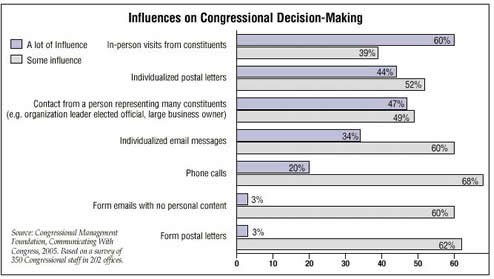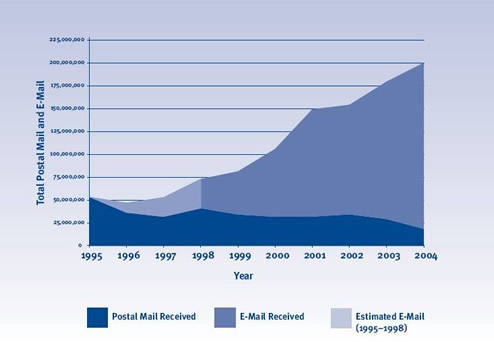Contacting Your Congressperson
Communicating with your members of Congress is one of the most important ways you can participate in policy making. Your visits, letters, phone calls, and emails let elected officials know that their constituents are well informed, watch what they do, and care about national affairs. Constituent communications tell members which issues are of greatest concern to voters.
However, reaching members of Congress has become much more difficult in recent times. Staff in many congressional offices report that postal mail no longer gets through in a timely manner, as it continues to be irradiated off-site.
 Is letter-writing no longer an effective advocacy tool? Is letter-writing no longer an effective advocacy tool?
It is still a good tool; however, many offices recommend that letters be sent to the member's local district or state offices. The letters are then bundled and sent regularly to the member's Washington office. Alternatively, letters can be faxed to the Washington office.
 How can we communicate with our elected officials now? How can we communicate with our elected officials now?
Calling is often the best way to reach legislators (Capitol switchboard: 202-224-2131) Say you are a constituent and ask what is the best way to contact your member's office on issues of concern (postal mail, email, phone, fax). Each office has different preferences. Then spread the word to your friends.
 What else works? What else works?
Here are a few other ways to get your message through to your members of Congress, listed roughly in order of effectiveness:
- Local lobby visits
- Phone calls
- Faxes: Be sure to: a) address it directly to the staff person in charge of your issue if possible; b) state your issue, bill number, and position in the subject line; c) put your mailing address at the top, so that it is clear that you are a constituent; d) keep the text short and focused on one issue.
- Email: Same guidance as for faxes, above.

Courtesy FCNL

Source: Congressional Management Foundation, Communicating With Congress 2005
|
 Home
Home Archives
Archives Home
Home Archives
Archives